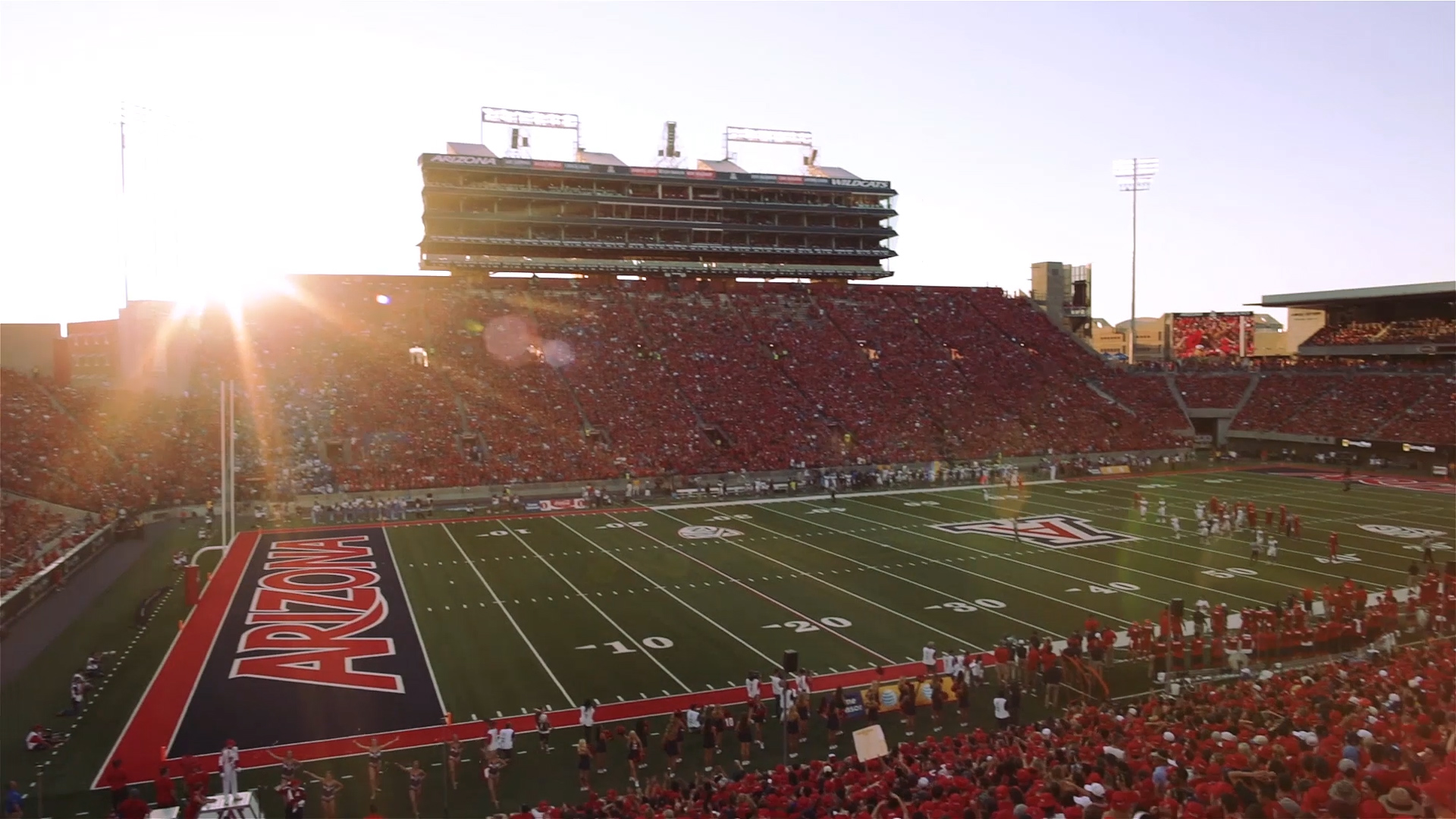 Aerial view of Arizona Football stadium
Aerial view of Arizona Football stadium
A judge granted Oregon State and Washington State a preliminary injunction Tuesday in their legal battle with 10 departing Pac-12 schools, giving the Pacific Northwest rivals control of the conference and millions of dollars in assets.
With a significant legal hurdle cleared, Oregon State and Washington State could soon determine how they will go about keeping the Pac-12 alive and what schools they will be competing against next year.
“We look forward to charting a path forward for the Pac-12 that is in the best interest of the conference and student-athletes,” Oregon State President Jayathi Murthy and athletic director Scott Barnes said in a statement. "Our intentions are to make reasonable business decisions going forward while continuing to seek collaboration and consultation with the departing universities.”
At a hearing in Whitman County Superior Court, not far from Washington State's Pullman campus, Judge Gary Libey ruled Oregon State and Washington State should be the only members making decisions about Pac-12 business.
“Oregon State and Washington State will be the sole members of the board,” Libey said, ruling quickly after hearing arguments for about 2 1/2 hours.
The outgoing Pac-12 schools said they will appeal the ruling.
“Nothing's going to change in the Pac-12,” Libey said. “The athletes will still be competing. The schools will still be doing business, Pac-12 will still be doing business but will be governed by the two universities that have not submitted their notice of withdrawal."
Washington State athletic director Pat Chun and university president Kirk Schulz attended the hearing, along with Barnes.
“We are pleased with the court’s commonsense decision today," Chun and Schulz said in a statement.
Oregon State and Washington State took the Pac-12 and Commissioner George Kliavkoff to court in September and received a temporary restraining order, but the conference was allowed to conduct day-to-day business as long as decisions had unanimous approval by all 12 schools.
Over the course of about a month this past summer, eight Pac-12 schools announced they would be leaving the conference to join other Power Five leagues, starting next August. Southern California and UCLA announced in 2022 they would be leaving for the Big Ten.
That left only Oregon State and Washington State committed to the Pac-12 long-term, and officials at both schools decided their best path forward is to rebuild the conference.
They contend Pac-12 bylaws say schools that announce they are leaving relinquish the right to be part of the board of directors and have no say in any decisions that could impact the league's long-term viability.
In court documents, Oregon State and Washington State claim they have reason to fear the departing schools would vote — if allowed to convene as board members — to dissolve the conference and distribute its assets among the group of 12.
They also say when USC and UCLA announced they were leaving, they were immediately removed from the board and 24 meetings were conducted without them.
The judge agreed.
“Conduct is what counts and words don’t so much,” Libey said.
Eric MacMichael, an attorney for Oregon State, argued on behalf of both schools that the departing members had no incentive to invest in the preservation of the conference.
The departing schools argued conference rules give them the right to be involved in the running of the conference until they actually leave next year.
They claim Oregon State and Washington State are trying to seize more than $400 million in revenue the Pac-12 is set to receive this year, cutting out 10 members who are still competing in and contributing to the conference.
“We are disappointed with the decision and are immediately seeking review in the Washington Supreme Court and requesting to put on hold implementation of this decision," the departing schools said in a joint statement.
Libey said Oregon State and Washington State would need to give notice of any decisions that could impact the departing schools and warned that if they treat the outgoing members unfairly, they could expect to be back in court.
The clock is ticking for Oregon State and Washington State to make definitive plans for next season.
“We are trying to explore all options,” MacMichael said. “But we can’t do anything right now because we’re shackled to 10 people who have no interest in seeing this conference survive or move forward or even have a future. All they want is to get every last dollar that they can out of the Pac-12 before they leave and join the Big Ten, the Big 12, or the ACC. So we can’t do anything in this state of paralysis that we’re currently in.”
A two-school conference, allowable on a temporary basis by the NCAA, is a possibility for Oregon State and Washington State next year. But the two schools can't just compete against each other.
To complete schedules in all sports, the schools have discussed a partnership with the Mountain West, but the details of that alliance still need to be worked out.
The Pac-12 also has no media rights deal beyond this season. Both schools have acknowledged they are facing a huge drop in revenue as the Pac-12 loses Power Five status.

By submitting your comments, you hereby give AZPM the right to post your comments and potentially use them in any other form of media operated by this institution.